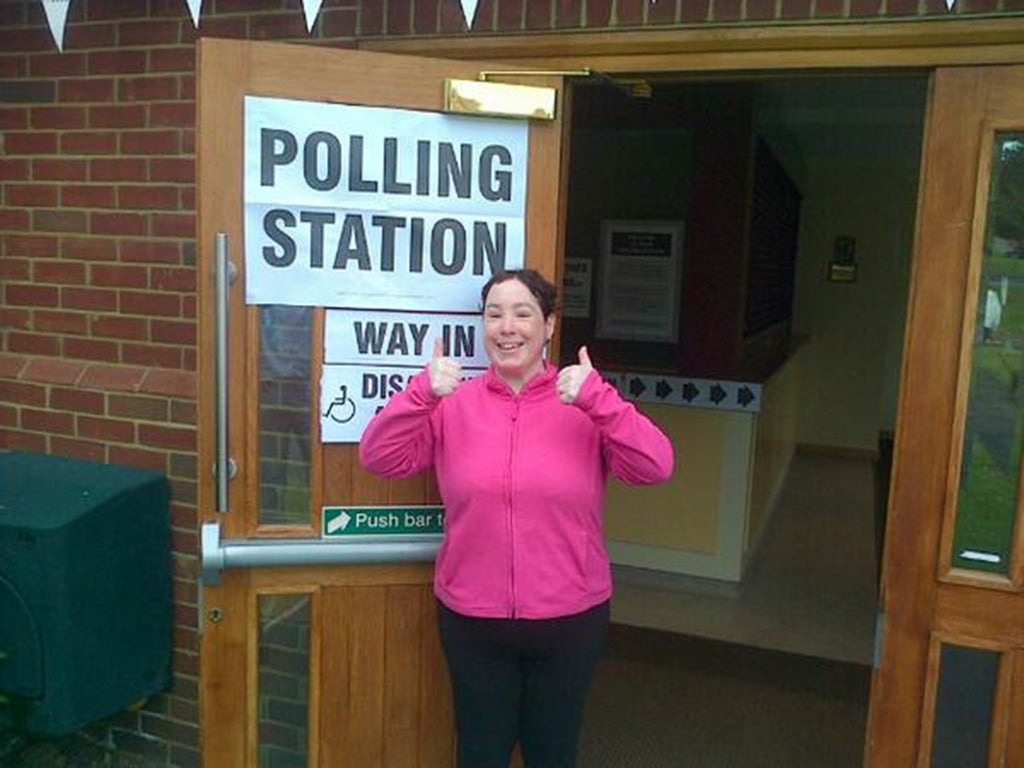Life with a learning disability means judgement and discrimination - but it doesn't have to be this way
Mencap’s Hear my voice campaign wants to make sure the next government listens to people with a learning disability

When I was 10 years old, I was told I had a learning disability. I was angry and upset. I was labelled and it felt that, because of this label, the kids at school told me I was thick. The teachers told me I wouldn’t be able to do anything with my life. But after many challenges, I have now proved that I can do lots of things.
So, what is a learning disability? My colleague, Sam Callanan, who is head of research at Mencap, told me that Mencap officially defines a learning disability as being “a reduced intellectual ability and difficulty with everyday activities – for example, getting dressed, cooking, or doing household tasks – which affects someone for their whole life”.
“A learning disability occurs when the brain is still developing, either before, during, or soon after birth. The level of support someone needs depends on them as an individual, including how severe their learning disability is”.
However, for someone who has a learning disability, it can feel like a negative label. I am married, I have my own home, and I work in a job I love, where I get to help other people. I have achieved this because I have the right support from my friends, families and co-workers. These are things I could only dream about when I was little. But these things are still a dream for lots of other people with a learning disability and they shouldn’t be.
People with a learning disability – people like me – often feel like we’re not good enough, like we’re second class citizens. We are discriminated against every single day and made to feel like we’re different.
In 2013 the Crime Survey for England and Wales found that there were 124,000 disability hate crimes in the past two years. I think the real number is actually much higher.
We know over half of disabled people have been victims of violence and hate crime. These are people like Kelly, who has been bullied for 20 years just because she has a learning disability. People have called her names, spat at her, punched her and even thrown knives at her. She asked the police to help but they just told her to ignore it and to walk away when it happens. Kelly has had to move out of two different homes because people wouldn’t leave her alone.
I remember the awful murder of Bijan Ebrahimi in the summer of 2013, he was registered disabled. He was killed by being beaten and set fire to. It must have been terrifying. He was attacked by what the media said to be concerned neighbours. They accused him of being a paedophile. A victim of harassment, what started as a smaller thing ended up with him being murdered.
Behind the headlines and the numbers are people with a learning disability - like me - facing discrimination every day. People in power - like councillors and MPS to comedians - still tell jokes and say things that are offensive to people with a learning disability. It is important that we all challenge these attitudes, as I believe it makes it more likely people with a learning disability will be bullied, abused and harassed in their local areas. This often leads to hate crimes. In the worse cases, it can lead to people - like Bijan Ebrahimi - being murdered.
I recently went to see the new Inbetweeners film and I was disappointed that two of the characters used the word ‘retard’ twice. It made me feel very uncomfortable. Everyone in the cinema was laughing at the r-word. It reminded me of being at school. It makes me angry that many people are going to go and see this film and will come away thinking it’s okay for them to use the word as an insult. This is the type of discrimination that people with a learning disability have to face every day.
Many others would not realise the language used in the film was offensive - as someone with a learning disability, you can often feel you are all alone. But from our recent poll, carried out by Populus, we have found out this is not always true. The British public thinks people with a learning disability should have the same chances in life as anybody else and want the next government to make this possible. So there really is no excuse for those in power not to start making a difference to our lives.
Mencap’s Hear my voice campaign wants to make sure the next government does this by helping people with a learning disability have their voices heard by MPs and candidates. Now that the public is behind us, they have to take notice.
As part of the campaign, Mencap has published a manifesto, which tells candidates about what people with a learning disability and their families want the next government to act on. These issues include hate crime, healthcare, social care and education. We want to get as many people as possible involved in the campaign so that they can tell their stories.
I’m going to make sure my voice is heard by talking to my local candidates. It is really important that the voices of people with a learning disability are listened to, because we are the experts in what matters to us.
This is our chance to make a difference to our futures – let's hope the candidates are listening.
Ciara Lawrence, campaigns assistant at Mencap
Subscribe to Independent Premium to bookmark this article
Want to bookmark your favourite articles and stories to read or reference later? Start your Independent Premium subscription today.

Join our commenting forum
Join thought-provoking conversations, follow other Independent readers and see their replies